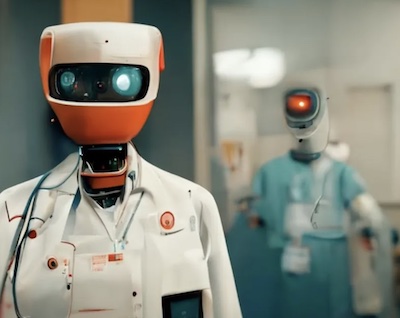As artificial intelligence (AI) continues to advance, there is increasing concern about the possibility of it replacing doctors in the healthcare industry. While AI technology has immense potential to transform healthcare, there are three critical aspects of medical care where it cannot replace the human touch: head, hands, and heart.
Head: The Significance of Critical Thinking
Critical thinking is a fundamental skill for doctors, allowing them to analyze complex medical issues and make decisions based on the best available evidence. While AI algorithms can assist in this process, they lack the human capacity to think critically. AI is only as reliable as the data it has been trained on and cannot account for the nuances of individual patients. Doctors, on the other hand, can use their clinical expertise and judgment to make personalized decisions that are tailored to each patient’s unique needs.
Hands: The Importance of Physical Examination
Physical examination is an essential aspect of medical care, where doctors use their hands to detect abnormalities, listen to the heart and lungs, and perform other diagnostic tests. While AI technology can analyze medical images and other data, it cannot replace the significance of human touch. A physical examination by a doctor can reveal vital information that is not apparent from other tests. Besides, the physical examination allows doctors to build relationships with their patients and develop trust.
Heart: The Significance of Empathy
Healthcare is not just about diagnosing and treating medical conditions. It is also about caring for patients as individuals. This necessitates empathy, compassion, and the ability to listen to patients’ concerns. Although AI technology can provide information and recommendations, it cannot replace the human connection that is so critical in healthcare. Patients need to feel understood and cared for, and doctors are uniquely positioned to provide this level of care.
In conclusion, AI technology will certainly play an increasingly important role in healthcare. However, it cannot replace doctors entirely. The ability to think critically, perform physical examinations, and provide empathetic care is crucial in medical care, and these essential elements cannot be replaced by machines. Instead, AI will complement doctors’ abilities, helping them to provide better care to their patients.

